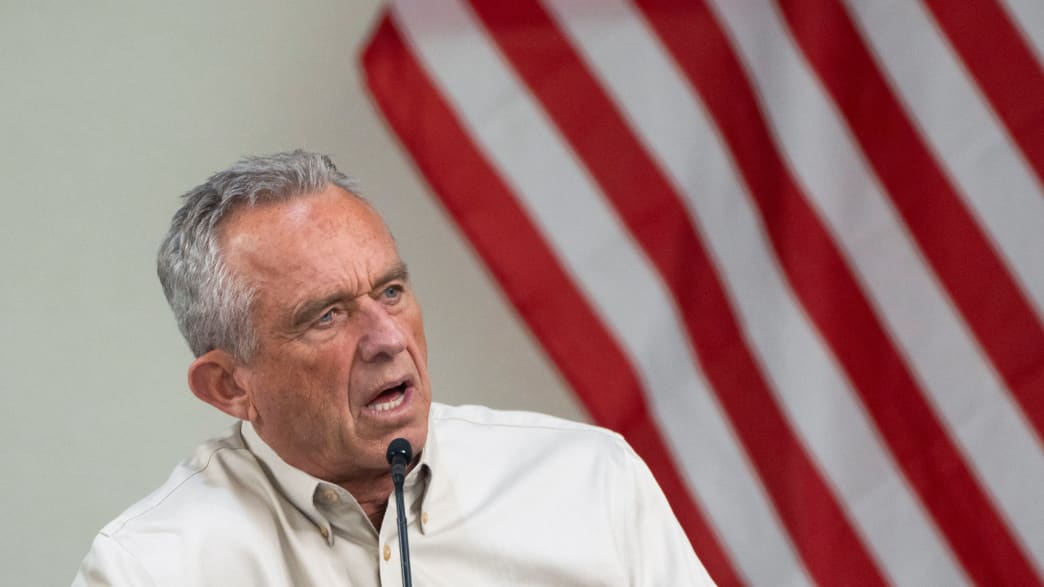Harris Accused of Dodging Press Questions as Election Nears
As the 2024 presidential race heats up, Vice President Kamala Harris is under scrutiny for allegedly avoiding difficult media questions. CNBC’s Joe Kernen has been vocal about his concerns, suggesting that Harris is not facing the tough inquiries that Americans expect.
Sen. Chris Coons, a co-chair of Harris’s campaign, has attempted to defend her against claims of dodging the press, pointing to what he says is her willingness to engage in interviews and participate in debates, despite criticism, as Fox News reports.
Kernen questioned Coons during an interview, noting what he called a “deliberate effort” by Harris’s campaign to avoid hard-hitting interviews.
He pointed out that Harris had conducted far fewer media appearances compared to her opponent, highlighting the interviews Republican candidate Donald Trump and his surrogates, like J.D. Vance, had done. Kernen expressed frustration over the lack of in-depth conversations from Harris, which he said is leading to dissatisfaction among voters.
Critics Question Lack of Transparency
Kernen was particularly critical of Harris’s relatively low number of interviews, contrasting this with Trump’s campaign, which has been more accessible to the media. He implied that Harris’s strategy seemed designed to minimize her exposure to tough questions, a view echoed by other commentators. The CNBC host pointed out that Harris’s interviews, including one with her running mate Governor Tim Walz, have been sparse, leaving many voters feeling uninformed.
Harris has not held a formal press conference since she became the Democratic Party nominee, although she has participated in interviews with prominent outlets such as CNN and the National Association of Black Journalists. These appearances, however, have not satisfied critics who believe she has avoided giving direct responses to key issues.
Peggy Noonan Adds to Criticism
One of the most vocal critics of Harris’s media approach is Peggy Noonan, a columnist for the Wall Street Journal. Noonan has accused Harris of failing to answer important questions, calling her avoidance of issues like illegal immigration "political malpractice." She argued that Harris’s reluctance to address these topics directly is disrespectful to the electorate.
In one of her recent columns, Noonan took issue with Harris’s interview performance, stating that the vice president failed to provide straight answers. She described Harris as an “artless dodger” and asserted that her inability to address serious policy questions undermines her campaign’s credibility.
Coons Defends Harris Amid Criticism
Coons, however, pushed back on the narrative that Harris is dodging questions. He highlighted her willingness to debate Trump and noted that Harris has not shied away from opportunities to speak with the media. He emphasized his belief that Harris’s participation in a second debate with Trump demonstrates her readiness to face scrutiny.
The lawmaker also pointed out that while Harris has not held a formal press conference, she has been involved in interviews with major outlets and local media. He downplayed the significance of the quantity of interviews, arguing that the substance of the interviews and Harris’s policies should take precedence.
Comparisons With Previous Campaigns
In the broader context of campaign strategies, the Harris campaign’s approach to media appearances has drawn comparisons with previous election cycles. CNBC co-host Becky Quick noted that in previous elections, voters had a more comprehensive understanding of the candidates' positions by this point in the race. Quick expressed disappointment that, in this cycle, there is less clarity about where the candidates stand on critical issues.
Quick’s observations align with Kernen’s concerns that Harris’s limited media exposure is leaving many questions unanswered. The perceived lack of transparency has become a key talking point among commentators, as the election draws nearer, and voters seek more detailed information about the candidates.
Debate Over Media Engagement
While Harris’s surrogates defend her media strategy, the criticism from figures like Noonan and Kernen highlights a broader debate about transparency in modern political campaigns. Harris’s decision not to hold a formal press conference, coupled with the relatively few interviews she has given, contrasts with Trump’s more frequent media appearances.
This has led some commentators to argue that Harris is deliberately avoiding tough questions in the final stretch of the campaign. Kernen’s remark that there seems to be a strategy to “rope-a-dope” the election until the end underscores the frustration among those who feel Harris should be more forthcoming.
The Impact on Voter Perceptions
As the election approaches, Harris’s media strategy could have a significant impact on voter perceptions. Kernen’s argument that Americans want to see their candidates answer tough questions reflects a broader sentiment that transparency is crucial in presidential campaigns.
The lack of formal press conferences and limited interviews may leave some voters feeling disconnected from Harris’s positions on key issues.
Noonan’s criticism, particularly her assertion that Harris’s avoidance of questions on illegal immigration is a form of political malpractice, adds to the pressure on Harris to engage more fully with the media.
For her part, Harris has continued to participate in select interviews, but the debate over her media strategy shows no signs of slowing down as Election Day approaches.



